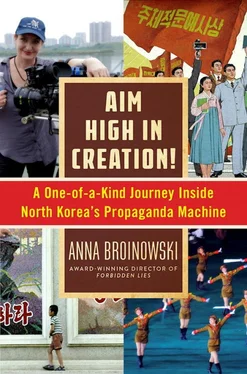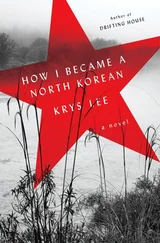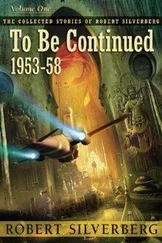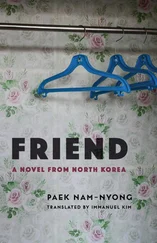But now I am sitting on the forty-seventh floor of the Yangakkdo, the fact that my ten-year marriage is unravelling in Sydney like a midlife-crisis B movie no longer seems to matter. I am feeling serene, philosophical even. I find it oddly reassuring that Kim, with his finely tuned appetite for young actresses—many of whom he personally trained—would accept it as entirely natural that my ex has replaced me with a student, a girl half my age.
Which proves that I am either emotionally autistic, or being in North Korea has an oddly discombobulating effect on reality. Call me crazy, but I’d rather be here, communing with Kim Jong Il and scanning the lampshades for microphones, than scanning my ex’s phone for suspicious numbers back in Sydney. I’m feeling the same calm acceptance you have when you buckle into a long-haul flight with no email access—or fling yourself into space on a bungee cord. The pleasant certainty of knowing there’s no option, that you must resign yourself, irrevocably, to fate. For what it’s worth: if you’re going to go through a divorce, do it in Pyongyang.
I scan Ms. K’s itinerary. It promises fourteen blissful days in the company of people who will never know about my crumbling marriage, let alone care. As it turns out, one man will prove me wrong about this. But for now, I focus happily on my film—and the theory I came here to test.
When Kim Jong Il died, on December 17, 2011, the West watched shivering North Koreans hurl themselves at his casket in Pyongyang’s snow-locked streets in fascination. Speculation flooded the web: surely these people were crying out of fear that if they didn’t cry, they’d be sent to the gulags? Or worse still—they were brainwashed automatons, subhuman groupies who could no longer think for themselves? How could anyone shed a tear for Kim Jong Il, that citizen-slaying monster, the egomaniacal tyrant of Team America fame, who wanted to nuke America and everything it stood for, Bad Guy numero uno in George W. Bush’s “Axis of Evil”?
Instead of stalking my ex’s new girl on Facebook, I watched those grieving North Koreans on YouTube. Then I pasted their wailing faces against video of Western churchgoers whipped up by mic-toting pastors into an evangelical frenzy, and was struck by something: the crowds looked and sounded eerily the same. The fact is, Kim Jong Il knew how to drive people to religious fervor through film, the same way the Bible Belt’s best inspire their flocks with the Book.
Kim was a passionate film buff, secretly housing twenty thousand Western movies, which he’d banned his people from seeing, in a vacuum-sealed vault in Pyongyang. He produced more than 1,400 propaganda films over five decades, cunningly adapting Hollywood genres and techniques to transform North Korea’s dour socialist cinema into a modern smorgasbord of noir thrillers, rom-coms, sexy melodramas, historical epics, pyrotechnic monster pictures, and big-budget military shoot ’em ups.
Kim Jong Il’s regime may have sold his people fear—but his movies sold them hope, beauty, certainty, belief, and love. So, getting back to my theory: is it possible the grief the North Koreans showed the day Kim died was genuine? Could the passion with which they mourned him have something to do with the emotional power of the films he produced? Was Kim Jong Il—that bastard child of Leni Riefenstahl and Steven Spielberg (both of whom he greatly admired), the boy-cineaste who grew up loving Hong Kong chopsocky flicks, James Bond, and everything Elizabeth Taylor ever made, and went on to fix his stagnating film industry with a zealous kind of brilliance—just a frustrated artist who got the wrong job? An artist who, if born in the West, might have become a celebrated auteur, pimped on the Croisette at Cannes for his “revolutionary vision,” his “uplifting morality,” and the “heart-warming universality” of his David vs Goliath themes?
The North Koreans outside my window would be horrified to know that Kim’s only actual appearance at Cannes was in an urn carried by Sacha Baron Cohen to promote his slapstick comedy The Dictator . When Baron Cohen, flanked by gun-toting babes and looking like a cross between Saddam Hussein and Prince, announced his dear friend Kim’s “deep desire to be here in person,” then spilt Kim’s ashes all over a gay TV host with the zinger “That’s not the first time you’ve had an Asian man on your chest,” he got nearly eleven million hits on YouTube.
But Kim’s captive audience of 24.9 million has never heard of Baron Cohen, let alone YouTube. In their Internet-free world, they are totally ignorant of reality TV, the Kardashians, Instagram, twerking, and every other pop-culture fad that has distracted the West since North Korea sealed itself off permanently in 1953. For the people outside my window, the belief that their Dear Leader was a cinematic genius, revered by oppressed workers all over the capitalist world, is blissfully intact. On cue, a burst of music floats over the river: a warbling soprano, ricocheting from speakers across the landscape, like a muezzin’s call to prayer. I switch the TV to one of Pyongyang’s two channels (the rest of North Korea only has one), and the song continues over portraits of the Dear Leader: straddling a white stallion, waving at cheering crowds, saluting a fat toddler’s fist on his proud father’s knee. Italics scroll on the screen, karaoke-style: You pushed away the severe storm. You made us believe, Comrade Kim Jong Il. We cannot live without you!
I recognise the song from my midnight surfs on North Korea’s unofficial web channel, Urminzokkiri. It’s “No Motherland without You,” the number-one pop sensation Kim penned as a poet at university, where he screened bootlegged copies of Friday the Thirteenth in his dorm to seduce the girls. The song celebrates, among other things, Kim’s ability to control the weather.
At this distance, the woman’s voice is soothing, bathing the city in a cathedral-like calm. Even the dredge has stopped screeching. The pyjamaed men squat on their rock pile, sharing a cigarette. On the other side of the river, a squadron of red-kerchiefed boys do calisthenics on a low stone wall. An SUV glides silently along an empty road. A line of bicycling soldiers threads along a footpath, past the glittering Tower of the Great Juche Idea, and onto the marble colonnades of the Grand People’s Study House.
A plume of white vapour drifts from a pipe in the distance, encircling the buildings in cottony fog. Through the mist, Kim grins back at me like a Cheshire Cat from various facades. Red banners hang beneath his portraits, their bold white slogans punctuated with exclamation marks. It’s like peering down at a North Korean version of The Truman Show . The gentle greens and pinks of the buildings, immaculately mirrored in the uniforms of the people moving around them, the symmetrically planted trees, the ethereal mist, and Kim’s ubiquitous, shining face, all create the impression of a perfectly constructed world.
The desk phone buzzes. It’s Ms. K. “Miss Anna. We did not see you at breakfast.” I explain, like I did yesterday, that I prefer instant coffee. Ms. K giggles. “Let us go to the April 25 Military Film Studio!” Then, something new: “You must bring your passport.”
Unsettled, I check the bathroom cupboard. Our black flash drives are stashed where I left them. They are our masters; the orange drives we use on the shoot are dummies. Before we left Beijing, Nicola and I hatched an elaborate plan for saving any footage the North Koreans might want to delete: if either of us says, “I’m terrifically tired,” the other must find an excuse to get back to the hotel, run upstairs, and do an emergency data dump from the orange drives to the masters. The dummies can then be shown to our minders, and wiped at will.
Читать дальше












